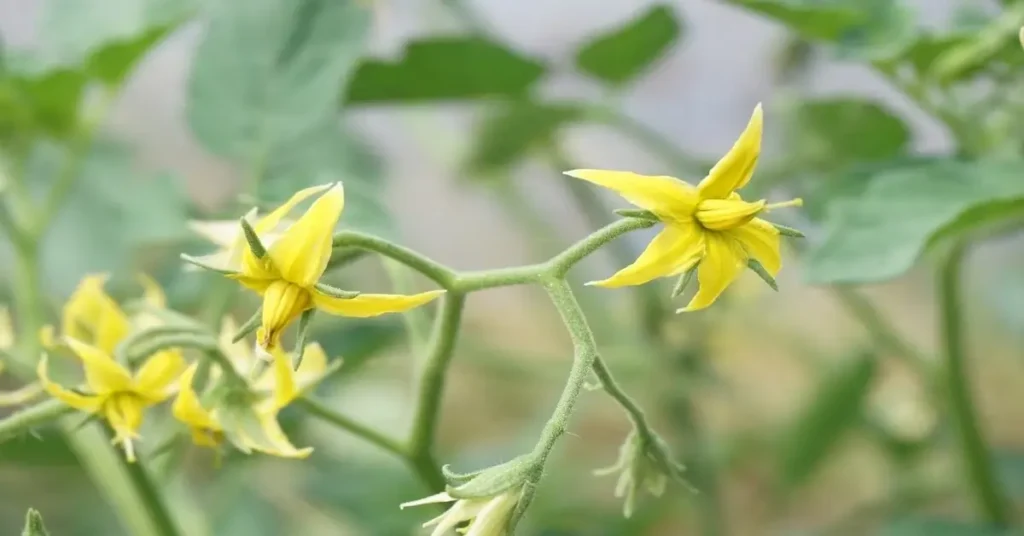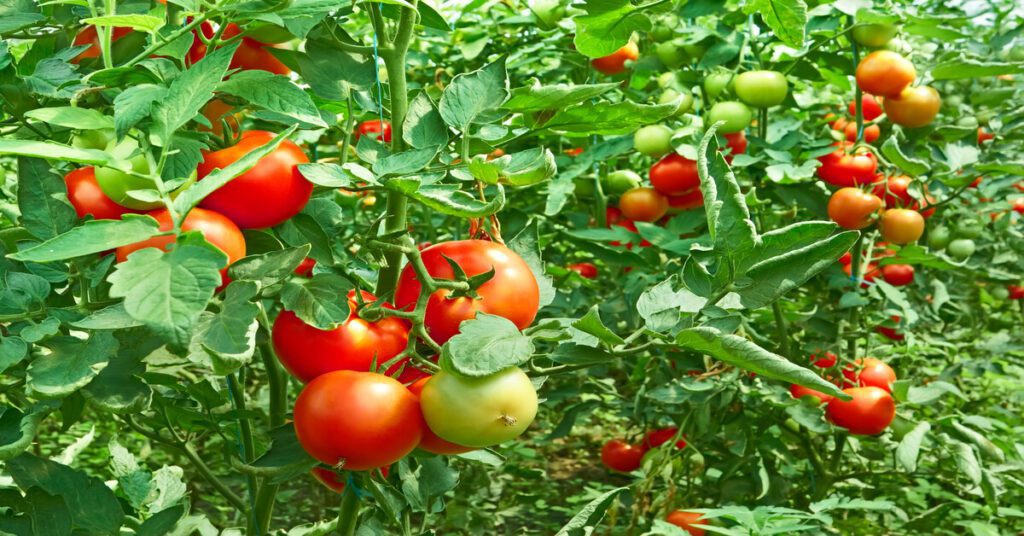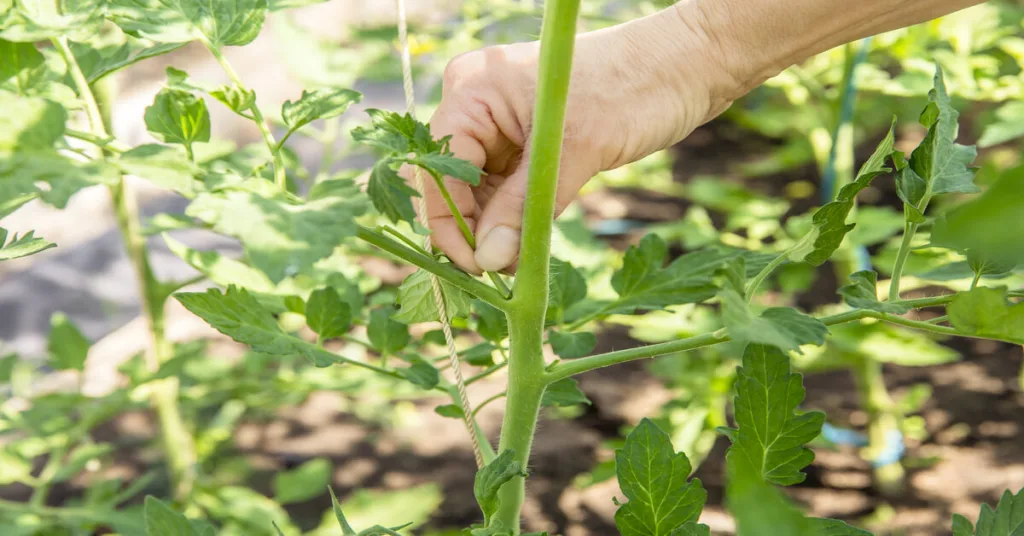You’ve diligently cared for your tomato plants, and they’ve rewarded you with many flowers. Yet, despite the promising blooms, you find no fruit. If you’re facing this issue, you’re not alone. This comprehensive guide will help you understand why your tomato plants may be flowering but not setting fruit.
The Importance of Pollination in Tomato Plants
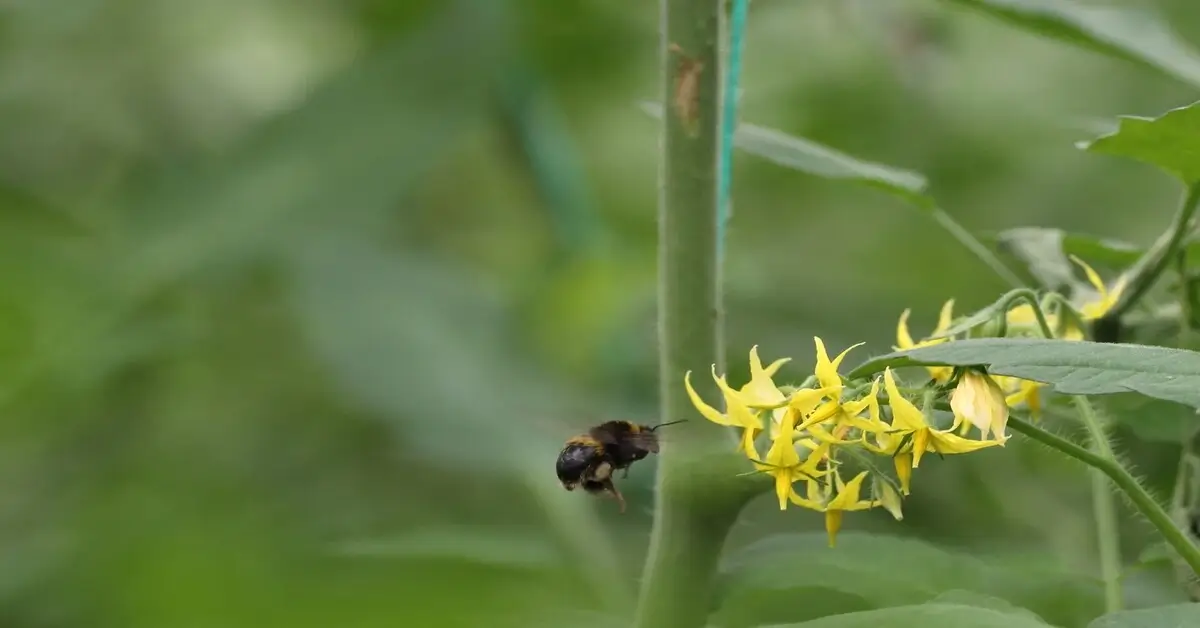
What is Pollination?
Pollination is the transfer of pollen from the male part to the female part of the flower. In tomatoes, this process is crucial for fruit set. Tomato flowers are generally complete, meaning they have male and female roles.
How to Pollinate Your Tomatoes
Suppose you’re growing tomatoes indoors or in an area with little wind or insect activity. In that case, you may need to assist in pollination. Lightly shaking the tomato plants can help distribute the pollen.
Common Reasons Your Tomato Plants Aren’t Setting Fruit
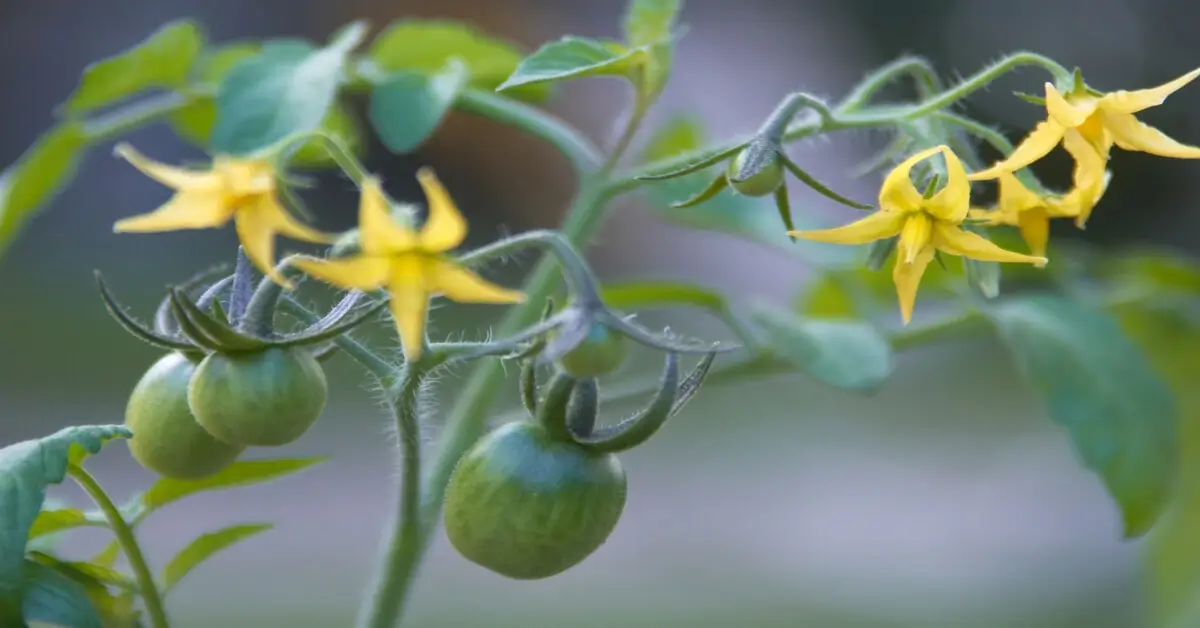
Lack of Pollinators
One reason tomato plants fail to produce fruit is the absence of pollinators like bees. Consider manual pollination if you notice a lack of insect activity around the plant.
Temperature Fluctuations
Tomatoes need at least consistent temperatures to set fruit. Extreme heat or cold can lead to flower drop in tomato plants.
Inadequate Nutrients
Tomato plants require a balanced diet of nutrients. A lack of essential nutrients can lead to a lack of fruit set.
Overwatering Tomatoes
Too much water can be as harmful as too little. Overwatering tomatoes can lead to blossom drop and a lack of fruit.
Lack of Sunlight
Tomato plants need plenty of sunlight for healthy growth and fruit production. A lack of adequate sunlight can result in poor fruit set and may even cause the plant to stop producing fruit. Ensure your plants receive at least 6-8 hours of direct sunlight each day.
Varietal Considerations: Different Tomato Varieties
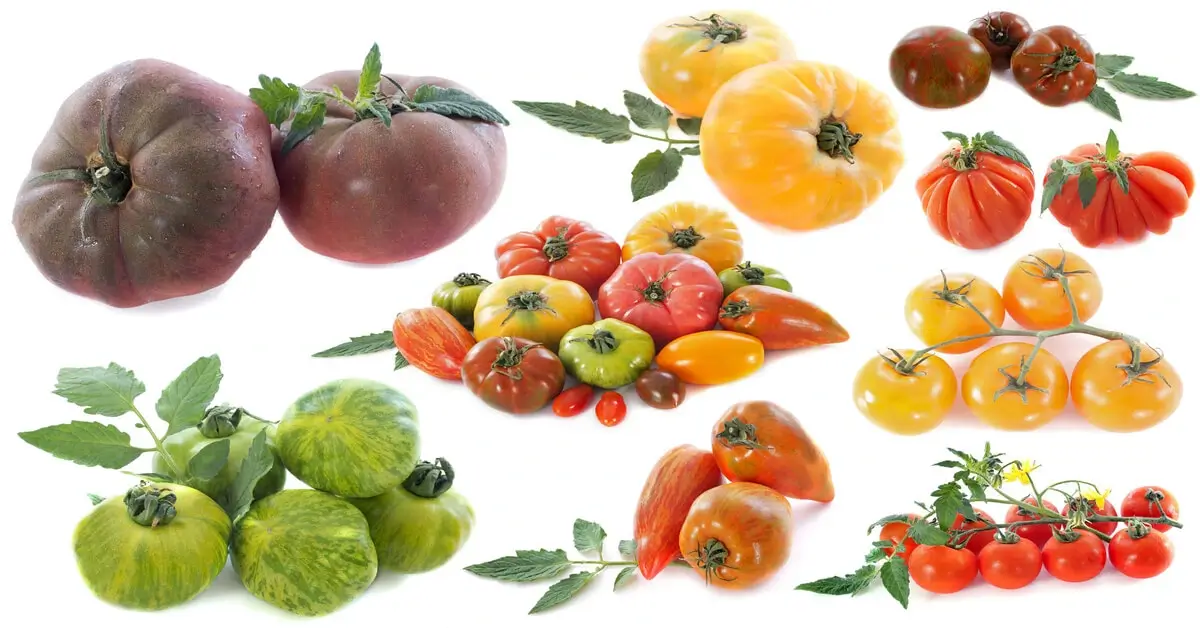
Different tomato varieties have different needs and resilience levels. Cherry tomatoes, for example, often set fruit more quickly than larger varieties.
How to Encourage Fruit Set in Tomato Plants
Proper Watering
Water the plant adequately but not excessively—tomato plants like a consistent watering schedule.
Nutrient Balance
Use a balanced fertilizer that encourages fruit set and increases fruit yields. Too much nitrogen, for example, will lead to lush foliage but little fruit.
Environmental Control
Keep your tomato plants sheltered from extreme conditions. Some gardeners use row covers or shade cloth to protect plants during extreme heat.
Conclusion
Understanding why your tomato plants are flowering but not producing fruit can be frustrating. However, with the proper knowledge and practices, you can stimulate the plant to flower and set fruit. Whether dealing with pollination, temperature, or water issues, solutions can help you enjoy a fruitful tomato season.

